
Key Takeaways
- Bikepacking blends cycling with the adventure of minimalistic camping.
- Gear for bikepacking is lightweight and functional, emphasizing self-sufficiency.
- The activity offers a unique avenue for exploration and physical challenge.
Are you looking for a thrill beyond the ordinary? Let’s dive into the world of bikepacking and discover why adventurers are making the switch.
Adventure seekers are switching to bikepacking because it merges cycling and minimalist camping, offering urban micro-adventures, GPS navigation, custom gear, and vibrant community events, creating an unmatched outdoor experience.
With years of firsthand bikepacking adventures under my belt, I offer expert insights and firsthand experiences that fuel my passion for this thrilling outdoor pursuit. From navigating remote trails to customizing gear setups, I've honed my skills to help fellow adventurers embark on unforgettable journeys. Let’s explore the exhilarating world of bikepacking together!
Why Adventure Seekers Are Switching to Bikepacking
Adventure seekers are increasingly turning their attention to bikepacking, a unique blend of cycling and minimalist camping that gifts the freedom to explore the natural world in a way few other activities can.
This switch to bikepacking is driven by a desire for a more immersive outdoor experience, the allure of self-sufficiency, and the quest for a physical challenge.
If you're intrigued by the idea of embarking on a multi-day trip powered solely by your pedaling, you're not alone. Many are trading their traditional vacation plans for a bikepacking adventure, drawn to the simplicity and the satisfaction of carrying everything they need on their trusty two-wheeler.
Gear recommendations for new bikepackers highlight a focus on lightweight and functional equipment, which can make a significant difference in enjoyment and performance. The beauty of bikepacking lies not just in the destinations reached, but in the stories created along the journey.
Whether it's carving out a micro adventure in the heart of the city or engaging with nature off the beaten path, bikepacking caters to a wide array of experiences without compromising on the thrill.
With an array of gear designed to maximize comfort and efficiency, this is a trend you might find hard to resist. Let’s explore why adventurers see bikepacking as the way to go.
Integration of Lightweight, Packable Camping Hammocks
Packable Camping Hammocks
Swap your tent for a camping hammock, merging comfort with convenience. These lightweight sleep systems offer a comfortable night's sleep suspended above the ground, which is a game-changer after a long day's ride.
What makes bikepacking ideal:
- Quick setup
- Minimal impact on nature
Utilization of Solar-Powered Charging Systems
Sustainable energy sources like solar-powered charging systems allow you to keep your devices powered up without the search for outlets. It's a green solution that keeps you connected even in the most remote settings.
What makes bikepacking ideal:
- Eco-friendly power solution
- Independence from the power grid
Innovative Modular Shelter Systems
Modular shelter systems provide flexible, lightweight shelter options for bikepackers. Whether facing a sudden downpour or setting up camp after dusk, these quick-to-assemble shelters offer protection without the weight penalty.
What makes bikepacking ideal:
- Versatile setups
- Quick assembly
Incorporation of Ultralight Cooking Systems
Enjoy hot meals on the go with ultralight cooking systems. These compact and efficient stoves make it easier to refuel with a warm meal, enhancing your adventure with the taste of home-cooked food.
What makes bikepacking ideal:
- Compact and portable
- Quick meal preparation
Thriving Community-Driven Events Like 'Bikepacking Summits'
Bikepacking summons riders to share experiences and learn through community-driven events, such as bikepacking summits. These convergences cultivate friendships, knowledge, and the spirit of adventure.
What makes bikepacking ideal:
- Knowledge exchange
- Networking with fellow adventure cyclists
Microadventures in Urban Landscapes
Urban landscapes offer a unique playground for bikepackers. With the rise of bike-friendly cities, you can experience mini escapades amid the concrete jungle. Bike lanes and greenways transform into your personal trails, making every ride a new exploration.
What makes bikepacking ideal:
- Easy accessibility
- A blend of culture and adventure
Customized Frame Bags
Frame bags are revolutionizing gear storage on bicycles, allowing you to customize your load for streamlined travel. By making use of the space within your bike's frame, these bags ensure that you carry everything you need without the bulk.
What makes bikepacking ideal:
- Efficient use of space
- Reduced weight on the back
Embracing Off-Grid Navigation with GPS Technology
Ditch the paper maps and embrace GPS technology, enhancing safety and navigation. From tracking your route to finding the nearest water source, GPS units are an invaluable tool for both urban and backcountry bikepacking.
What makes bikepacking ideal:
- Accurate navigation
- Emergency features
Beginner Tips for Bikepacking and Gear Recommendations
Adventure is calling, and bikepacking is the answer for many who are looking to satisfy their thirst for exploration with a dash of self-sufficiency. If you're new to blending cycling with minimalist camping, let's gear up with some pro tips and gear must-haves.
Getting Started with Bikepacking
Beginning your bikepacking journey is both exciting and a bit daunting. Thorough preparation and understanding of what bikepacking entails are crucial first steps.
Choose Your Bike Wisely A bikepacking bike differs from your standard road bike; it's designed to carry loads on varied terrain. Mountain bikes are a popular choice for their durability and comfort on trails.
However, don't rush out to buy a new one if you already have a bike — most types are adaptable for an overnight trip.
Start Small For your initial bikepacking adventure, consider a one-night trip close to home. This provides the opportunity to test your gear and get a feel for the bike when loaded, without being too far from help if things don't go as planned.
Choosing the Right Gear
Selecting the right gear can make or break your bikepacking experience. Let's ensure it's the former with a few recommendations.
Here’s a table showing essential bikepacking gear:
Planning Your Route
When it comes to route planning, there's a fine balance between adventure and safety.
Use Technology Utilize route planning apps like Komoot to map out your trip. These apps consider the terrain and can suggest bike-friendly paths, taking the guesswork out of navigation.
Weather and Terrain Always check the weather forecast and understand the terrain you'll encounter. Ensure your route is manageable for your skill level and gear.
Packing Essentials
Packing for bikepacking is an art—every inch of space counts, and unnecessary weight can slow you down.
Here’s a table with bikepacking packing essentials:
Safety and Maintenance
Safety and maintenance are not to be overlooked. The freedom of bikepacking comes with a responsibility to be prepared for mishaps.
Tools and Knowledge Carry a basic set of tools and possess the know-how to use them. Understanding how to perform basic maintenance on your chain or disc brakes can save you from a long walk home.
Safety Gear Pack safety equipment like a first aid kit and reflective gear. Follow the "leave no trace" principles and wear a helmet at all times. It's better to be safe than sorry, and preparation can make all the difference.
Frequently Asked Questions
In the realm of adventure, bikepacking has surged as a fusion of cycling and minimalist camping, offering an exhilarating way to explore nature. Let’s unpack this trend and get you ready for your own pedal-powered journey.
What Aspects of Bikepacking Make It Preferable Over Traditional Backpacking for Thrill-Seekers?
You've likely savored the solitude of a backpacking trip, but bikepacking takes the thrill to new heights. By traversing on two wheels, you cover more ground and get that adrenaline rush as you zip through varied terrains. The allure lies in the speed and range—imagine exploring deep forests or scaling mountain passes, all within a shorter time frame than on foot.
How Does Bikepacking Compare to Classic Bicycle Touring in Terms of Gear and Experiences?
While bicycle touring may evoke images of pannier-laden bikes on scenic roads, bikepacking strips this down to a more rugged and wild affair. You'll find that bikepacking demands lightweight and versatile gear, often using soft bags attached to the bike frame. This minimalism doesn't just reduce weight—it increases your connection with the untamed landscapes you're riding through.
What Kind of Equipment Is Essential for Someone New to Bikepacking?
Embarking on a bikepacking adventure requires some core equipment:
- A suitable bike, which can be your current mountain or gravel bike
- Bikepacking bags: think frame, handlebar, and saddlebags for efficient storage
- A compact and lightweight camping setup
- Reliable navigation tools
Could You List Some Top Tips for Planning a Successful Bikepacking Trip?
Preparing for success on your bikepacking quest involves a few key strategies:
- Plan your route meticulously, considering your fitness level and terrain difficulty
- Pack wisely—balance your load and opt for multi-use items
- Always have a contingency plan, including emergency contacts and alternative routes
- Stay hydrated and nourish your body with high-energy foods
What Are Some of the Unique Challenges One Might Face While Bikepacking?
On a bikepacking journey, you might tackle tough climbs, navigate technical descents, or push through unpredictable weather. While these can be parts of the thrill, they also require preparation and resilience. And let's not forget the solitude—it can be both blissful and formidable when you're miles from the nearest town.













































































































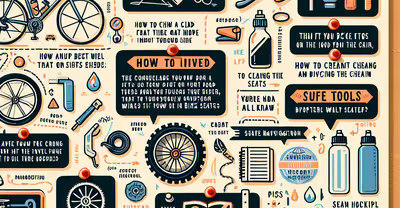


















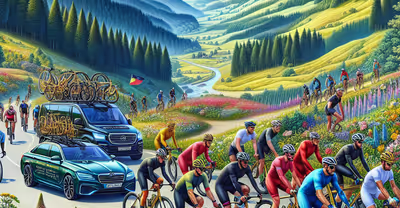







































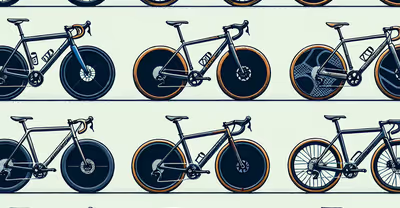

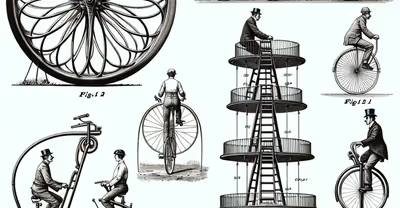





































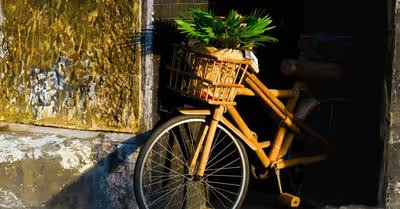










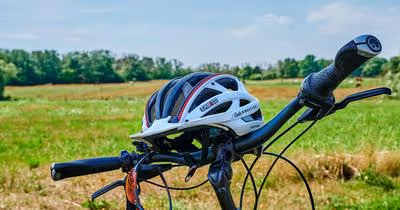




















































































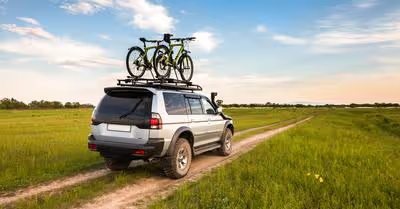

















































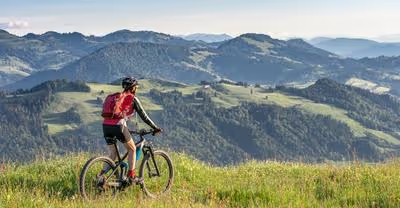



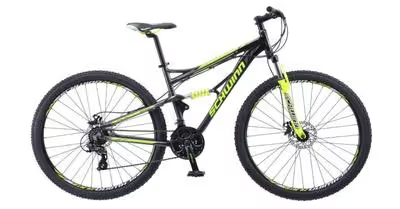




























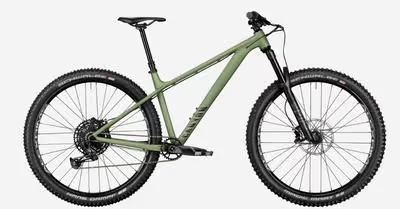








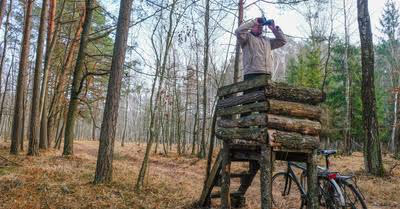















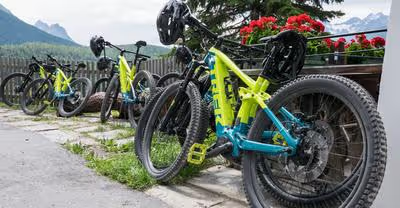


































































































































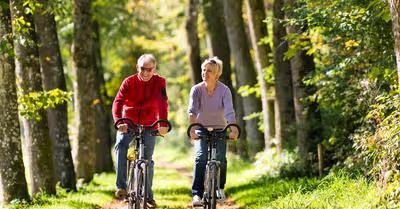










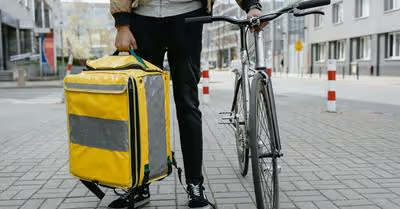
















































































































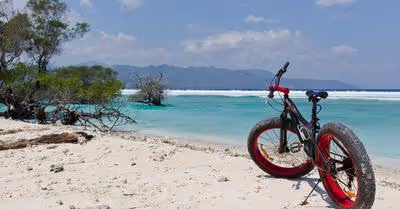


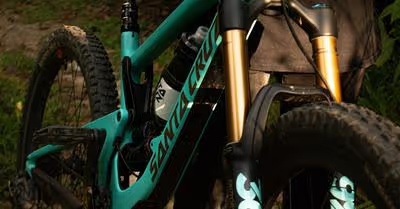
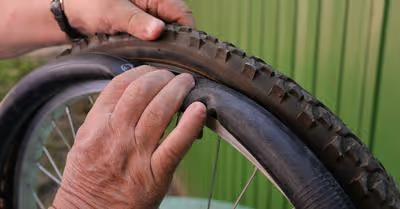







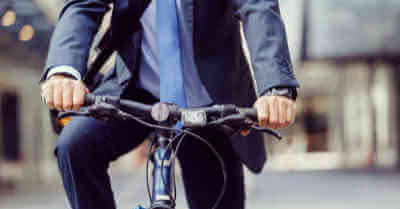









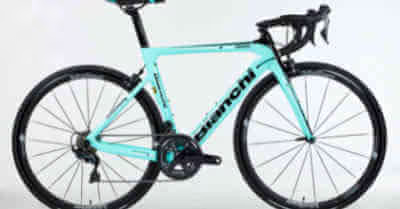


































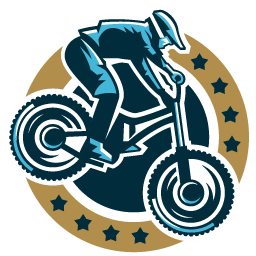
.avif)
